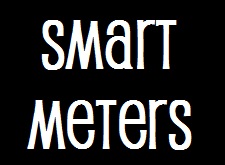 The smart meter roll out scheduled for 2015-2020 and the centrepiece of the government’s long term ‘solution’ for the energy market is just about the last major infrastructure project that the coalition would want to see hit trouble, think a Millennium Dome, on every street corner, complete with requisite upheaval.
The smart meter roll out scheduled for 2015-2020 and the centrepiece of the government’s long term ‘solution’ for the energy market is just about the last major infrastructure project that the coalition would want to see hit trouble, think a Millennium Dome, on every street corner, complete with requisite upheaval.
Many commentators have questioned the realism of installing over 53 million meters by private tender in all homes and businesses across the UK in 5 short years.
- That’s 10.6m a year.
- 883,000 a month.
- 203,000 a week.
- 29,000 a day.
- Without fail for 1,825 days.
And they all need to work, seamlessly and in unison with the wider data and communications infrastructure.
But now the Public Accounts Committee (PAC) has warned that the return on investment on the roll out may be much worse than had originally been anticipated with a saving of just 2% on the average energy bill in return for a (currently forecast) £11bn spend.
Margaret Hodge, the Chair of the PAC, cautions that each consumer could be paying £215 over the roll out period as the government assumptions of cost control and benefits may prove optimistic. Hodge warned:
“Relying on market forces to keep costs down may not be enough on its own to protect consumers”
Other cautionary recommendations raised by the PAC included:
- Requiring DECC to monitor “progress, costs and benefits” throughout the roll out period to continually identify whether the smart meters are being delivered at the lowest effective cost
- Requiring suppliers to provide a clear breakdown for consumers of the cost of smart meters, the possible cost savings and whether consumers are achieving the expected reductions in energy consumption.
- Cautioning that technology may evolve between now and the completion of the project which could result in now cutting edge technology becoming superfluous or redundant and thereby requiring a fluid approach to product selection and installation
Unusually the energy suppliers rather than the distribution companies are managing the roll out, a fact that has kindled concern as to the potential effectiveness of the project.
Scottish Power Energy Networks Chief Executive Frank Mitchell believes greater efficiency and cost-effectiveness could have been achieved by the roll out being managed by the experienced distribution networks:
“Every other country worldwide has done that [a smart meter roll out] through the distribution networks to get a geographical mass and economy of scale that reduced the cost of implementation [but] the decision was made by Ofgem to put that in the hands of the retailers. I think that’s the wrong decision and will end up costing consumers more”.
“Ultimately we’ve not learned the lessons from other countries that have deployed this technology ahead of us.”
A gargantuan task suddenly feels a whole lot bigger the closer it comes, the only certainty is that it won’t be completed by 2020 and the final bill won’t be £11bn. Quite when and what it will be however is a question none of us can answer. Let’s hope it’s worth it as the energy industry desperately needs this roll out to be a success if future energy policy is to be delivered.
